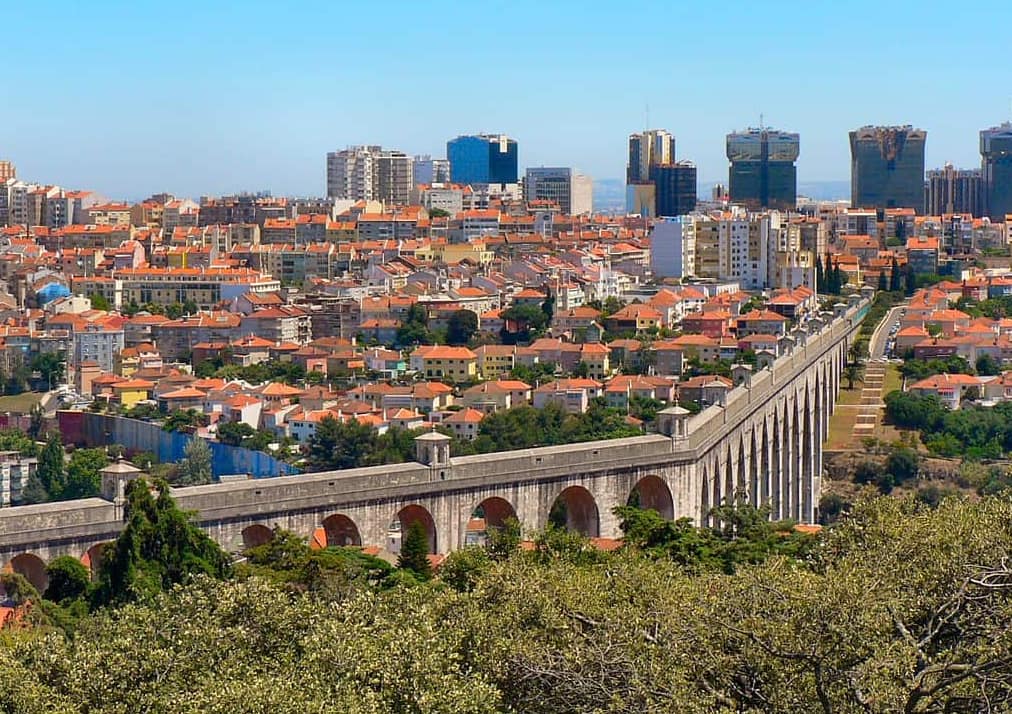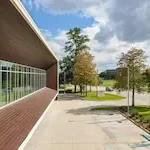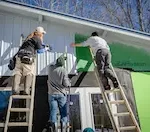Property and Home Inspection in Lisbon
Buying property in Lisbon is a significant investment, and understanding a building’s true condition is just as important as location or price. Older construction methods, the city’s humid climate, and varied building ages all create risks that aren’t always obvious at first glance. This article outlines what a property inspection involves, the common issues found in Lisbon homes, and how it can protect both your budget and peace of mind.

Table fo Contents
- House Inspection in Lisbon: Why It Matters
- The Lisbon Housing Landscape
- Areas We Cover in Lisbon (All 24 Parishes)
- Lisbon-Specific Hidden Defects
- Regulatory Framework and the Coming “Building MOT”
- What a Comprehensive Property Inspection Covers
- Home Inspection Costs & Timelines
- 3-Step Home Inspection with PIDS
- How to Leverage Inspection Findings in Negotiations
- 15-Minute Viewing Checklist
- Frequently Asked Questions
House Inspection in Lisbon: Why It Matters
Buying property in Lisbon can be rewarding, but many homes—especially in older districts like Alfama, Bairro Alto, and Baixa—come with issues that aren’t visible at first glance. More than 60% of Lisbon listings are for homes older than 40 years. That means you’ll often face damp and mold from the city’s humid climate, outdated electrical wiring, structural weaknesses in pre-seismic buildings, and roof leaks caused by salt air and humidity.
For example, an apartment in Alfama may look fine during a viewing, but closer inspection could reveal cracks or moisture damage that cost more than €20,000 to repair. Knowing about these risks helps you prepare realistic budgets, avoid unpleasant surprises, and make better decisions when negotiating your purchase.
The Lisbon Housing Landscape
Lisbon’s property market includes a large share of older buildings, many from before 1980. While these homes have character, you should expect outdated wiring, poor insulation, humidity damage, and worn plumbing. Even renovated properties often hide problems that only a thorough inspection will uncover.
Types of Buildings in Lisbon
- Historic Buildings: Found in Alfama, Baixa, Bairro Alto. Often built in the 18th–19th centuries using masonry walls, wooden beams, and Pombaline cages (earthquake-resistant frameworks).
- Mid-Century Buildings (1950s-1980s): Reinforced concrete structures with minimal seismic protection, common in Carnide and Arroios. Often suffer from concrete degradation and poor insulation.
- Modern Developments (1990s-Present): In Parque das Nações and Lumiar. Better insulation and seismic standards, but still prone to hidden plumbing or roof defects.
Areas We Cover in Lisbon (All 24 Parishes)
Ajuda, Alcântara, Alvalade, Areeiro, Arroios, Avenidas Novas, Beato, Belém, Benfica, Campo de Ourique, Campolide, Carnide, Estrela, Lumiar, Marvila, Misericórdia (Bairro Alto/Chiado), Olivais, Parque das Nações, Penha de França, Santa Clara, Santa Maria Maior (Baixa/Alfama), Santo António, São Domingos de Benfica, São Vicente.
Lisbon-Specific Hidden Defects
Lisbon’s buildings are full of character, but many have recurring problems. Here are some of the most common issues, where they usually show up, and the typical repair costs:
| Problem | Where It Usually Happens | Signs to Watch For | Typical Fix / Cost |
|---|---|---|---|
| Rising damp & mold | Older stone/brick homes in Alfama, São Vicente, Misericórdia | Musty smells, black spots in corners, white salt marks on walls | Better ventilation + waterproofing (€3,000–€8,000) |
| Roof & terrace leaks | Tile-roof houses in Estrela, Campo de Ourique, Penha de França | Stains on ceilings, damp patches near roof edges | Roof repairs or new waterproofing (€4,000–€15,000) |
| Structural cracks | Central districts like Baixa, Santa Maria Maior, older hillside homes | Diagonal cracks above doors/windows, sagging floors, leaning walls | Reinforcement or foundation work (€10,000–tens of thousands, case dependent) |
| Weak timber floors (wood-borer damage) | Traditional Pombaline/Gaioleiro homes in central Lisbon | Springy or soft floors, tiny drill holes in wood | Reinforcing or replacing damaged beams (cost varies) |
| Old electrical wiring | Apartments built before 1980 in Arroios, Santo António, São Vicente | Old fuse boxes, sockets that overheat or trip | Full/partial rewiring (€3,000–€6,000 for a 70–90 m² flat) |
| Concrete corrosion | 1950s–1980s blocks in Carnide, Lumiar, Olivais | Cracks in balconies, rust stains, exposed rebar | Building-wide repair programs (€2,000–€10,000+ per flat) |
*Ranges are indicative; we always recommend obtaining quotes from licensed contractors after the inspection. (Humidity patterns are driven by climate—Lisbon winters average ~79–80% RH—and by building envelopes common here.)
Impact of Local Climate
- Atlantic Coast (Cascais, Belém): Salt air accelerates corrosion of metals and reinforced concrete.
- Tejo Valley (Baixa, Alfama): High humidity and fog worsen damp and mold, especially in poorly ventilated buildings.
Regulatory Framework and the Coming “Building MOT”
Right now, Lisbon only requires separate checks (energy certificates, gas inspections, elevator safety). A new law, the “Building MOT,” is being proposed to introduce full property safety inspections every eight years.
Independent inspectors (engineers or architects) would check the structure, roof, plumbing, wiring, gas, and fire safety. Reports would be enforced by municipalities through mandatory repairs, fines, or restrictions on property use.
If approved, rollout could begin in 2027, focusing on older or higher-risk housing. For you as a buyer, this means greater transparency but also the possibility of costly repair obligations. By getting an inspection now, you’ll be prepared for these future requirements and better protect your property’s value.
What a Comprehensive Property Inspection Covers
When buying property in Lisbon, knowing exactly what you’re getting into is essential. A comprehensive property inspection by PIDS ensures you understand the full condition of your potential new home, avoiding nasty surprises with a full 100+ checkpoint assessment.
Here’s exactly what’s included in a thorough PIDS inspection:
- Site drainage and grading
- Driveways, paths, retaining walls
- Vegetation and trees affecting the property
- Rainwater and wastewater management
- Foundation condition
- Signs of structural movement (cracks on walls and ceilings)
- Roof covering, flashings, chimneys, gutters
- External walls (paint/render quality, insulation) and property thermal insulation
- Windows, doors, shutters, garage doors
- Walls, floors, ceilings, finishes
- Fireplaces and chimneys
- Staircases and balustrades
- Moisture issues and insulation
- Kitchen and bathroom fixtures and ventilation
- Basement and garage moisture condition
- Electrical panels, wiring, earthing and bonding, lighting
- Plumbing systems, water pressure, heating, drainage
- Heating and cooling systems (HVAC)
- Smoke and carbon monoxide detectors
- Railings and balcony
- Fire exits and safety hazards
- Pool safety (where applicable)
- Indoor humidity levels
- Visual signs of mould, mildew, or wood-destroying organisms
3-Step Home Inspection with PIDS
Quote, Booking & Confirmation
Fill out PIDS Home Inspection Form with property details. Receive a clear quote and confirm your booking.
Property Inspection On-Site
Our qualified local inspector visits the property. You or your agent can be present during the inspection.
Digital Report Delivered
Receive your full inspection report within 48 hours. Report includes photos, clear explanations, and recommendations.
How to Leverage Inspection Findings in Negotiations
Using your home inspection report effectively can significantly improve your buying experience:
- Schedule Early: Ideally, conduct your inspection before signing the CPCV (promissory contract). In Lisbon, CPCV contracts allow inspection clauses—buyers can renegotiate or exit if major issues are uncovered. If timing is tight, request a clause allowing renegotiation or withdrawal based on the inspection findings.
- Prioritize Repairs: Focus negotiations on urgent repairs and critical safety issues identified in your report, such as structural problems, electrical hazards, damp and moisture, property insulation and ventilation, and roof defects.
- Negotiate with Confidence: Clearly document inspection findings with detailed excerpts and photos from your report. Provide cost estimates from professionals to justify requests for repairs or price adjustments.
- Plan Strategically: Distinguish between essential repairs and long-term improvements. Immediate concerns should form the basis of your negotiation, while minor issues can be addressed after purchase.
Many Lisbon buyers secure up to 5% off the purchase price by using inspection reports in negotiations.
15-Minute Viewing Checklist
Before scheduling a professional property inspection, do a quick fifteen-minute self-audit. This helps spot obvious problems early and saves time when the experts arrive.
| Item | Area | What to Do | Why It Matters |
|---|---|---|---|
| 1 | Walls & Ceilings | Look for damp spots, bulges, peeling paint, hollow-sounding walls (Gaioleiro buildings), white salt marks near floor level (Baixa). | Damp patches often mean leaks or poor ventilation. Indicates moisture problems common in Lisbon’s older buildings. |
| 2 | Cracks & Settlement | Check around windows, doors, and corners for cracks. Fine hairline cracks are usually cosmetic; large diagonal cracks or uneven settling can point to structural issues. | Structural repairs can be very costly — worth catching early. |
| 3 | Windows & Doors | Open/close them; check frames for rot or rust. Enclosed balconies (“marquises”), aluminium frames without thermal breaks, condensation stains (especially facing north). | Sticking or uneven frames may signal movement in the building. And poor insulation leads to mold, especially in Lisbon’s humid winters. |
| 4 | Floors | Walk slowly; notice dips, creaks, or loose tiles. | Uneven floors often mean water damage or settlement problems. |
| 5 | Plumbing | Run taps; check water pressure and drainage. Look under sinks for leaks. | Poor drainage or leaks = plumbing repairs ahead. |
| 6 | Electrics | Check fuse box, test switches/sockets. | Old or unsafe wiring is a fire risk and costly to update. |
| 7 | Heating & Cooling | Turn on heating/AC; listen for noise, check even temperature. | Noisy or uneven systems may need repairs. |
| 8 | Smells | Notice musty or unusual odors. | Persistent odors often signal hidden mold or damp. |
| 9 | Exterior & Foundations | Check for cracks at the base, leaning walls, or moisture. | Foundation problems are expensive to fix. |
| 10 | Safety | Look for smoke detectors, secure railings, safe stairs. | Basic safety features protect your family and are often required by law or insurance. |
If you see large cracks, uneven floors, or clear settlement signs, that’s a strong signal to get a professional inspection before making any decision.
Frequently Asked Questions
- Is a property inspection mandatory in Lisbon?
No. It’s optional but strongly recommended. By law, only an Energy Certificate and, in some cases, a gas safety inspection are mandatory when selling or renting. However, these do not assess the overall real condition of the property. A full home inspection in Lisbon gives a clearer picture of the property’s state, checking for issues like damp, roof leaks, outdated wiring, or hidden structural problems so you can buy or sell with confidence and avoid unexpected repair costs. - When should I schedule a home inspection in Lisbon?
Ideally after your first viewing but before signing the CPCV (promissory contract). If timing is tight, negotiate an inspection/condition clause so you can revisit price or walk away based on the report. Portuguese guidance and case law recognise conditions in CPCV; banks and legal portals also advise setting clear suspensive/resolutive terms. - What if I cannot attend the inspection?
It’s completely fine if you can’t attend personally. Just ensure your agent or representative is present to grant access. Everything will be thoroughly documented in the final inspection report. - What about the “Building MOT” I’ve heard about?
There is no city‑wide mandatory building inspection law yet. Industry groups have proposed periodic inspections (e.g., every 8 years) for condominium buildings; municipalities and lawmakers are discussing models, but nothing universal is enforced today. We follow developments and can pre‑assess buildings to help condominiums plan. - Do you check for mold and damp? Why is Lisbon prone to it?
Yes—visual survey, spot RH/temperature, and moisture readings at risk points (north façades, ground floors, shaft walls). Lisbon winters are humid (≈ 79–80% RH), so poor ventilation and thermal bridges quickly show as condensation and mold. - Energy certificate vs. inspection—what’s the difference?
The Energy Certificate (SCE) rates energy performance and is legally required when marketing/selling/renting. A home inspection in Lisbon is a broader technical condition survey—structure, damp, safety, roof, plumbing, electrics—and is not a legal substitute for SCE. - How does humidity near the coast affect Lisbon homes?
High humidity and salt air cause accelerated corrosion of metal fixings, façade cracks, condensation on windows, and mould growth in closets or bathrooms. Coastal homes require more frequent maintenance, proper ventilation, and salt-resistant materials. - Which Lisbon building types do you inspect and what issues are typical?
We inspect Pombaline (Baixa/Alfama), Gaioleiro (Arroios/Intendente/Avenidas Novas), mid‑century RC blocks (Carnide/Lumiar/Benfica) and 1990s–present builds (Parque das Nações/Lumiar). Expect timber fatigue or tabique weaknesses in gaioleiro stock; terrace/roof waterproofing defects; and carbonation/spalling in 1950s–1980s concrete. - Do you cover all 24 Lisbon parishes?
Yes—property inspections in Lisbon across all 24 freguesias (from Ajuda/Belém to Santa Maria Maior/São Vicente). (List shown above in your article.)
Our customers said




★ ★ ★ ★ ★
4.85 from 350+ reviews
“Confidence in Buying”
PIDS home inspection caught hidden damp and an outdated fuse board in my 1950s flat. A detailed 30-page report landed the next morning and saved me €12,000 at the table.
Porto buyer
★ ★ ★ ★ ★
— Martha Nazario
“Exceptional Pre-Selling Service”
Their pre-listing building inspection showed cracked roof tiles and a missing RCD. I spent €1,400 on fixes, listed Friday, accepted full ask Monday.
Algarve seller
★ ★ ★ ★ ★
— Alex Martinez
“Maintaining Excellence”
I book the PIDS home inspector every year. Their thorough property inspection with clear photos keeps my rental compliant, tenants calm, and the report hits my inbox within 48 h.
Lisbon landlord
★ ★ ★ ★ ★
— Antoine Crawford
Contact PIDS property inspection in Portugal for a seamless, informative process, ensuring confidence in your property investment decisions.
✓ Expert Inspections ✓ Transparent Reports ✓ Informed Decisions